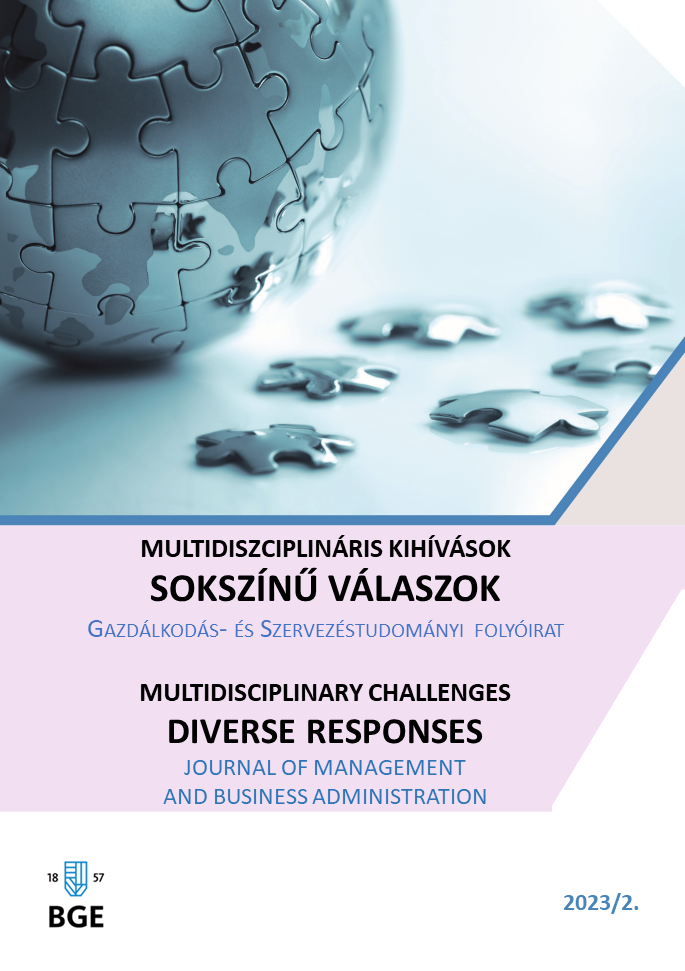New Challenges Ahead: Artificial Intelligence and University Education
Abstract
There has been exponential progress in the field of Artificial Intelligence (AI). Every week, new results and applications are emerging for which society, including higher education, is not prepared.
Universities are also looking for ways forward. Some are trying to restrict or ban the use of AI, others are at a loss, but many are trying to find some legal ways of using this phenomenon, which is also of concern to students, in education and research. The use of AI raises a number of ethical, educational and resource management questions, for which we do not yet have clear answers.
In this article, we examine the role of AI in university education, the advantages and disadvantages that this new technology can bring to the field of education. First, we review the various aspects of university education and AI, based on analyses published in the literature in recent months, and then we present the conclusions drawn from our own first teaching experiences and student opinions. We examine the usefulness of this technology in exploring literature sources, and finally we compare the performance of our students and AI in our own field by analysing exam solutions from recent years.
In our conclusions, we also address issues related to the responsibility of educators and make suggestions for the use of machine intelligence as Artificial Reason (Reasoning), touching on its ethical and techno-technological aspects.
In our article we purposely use the term Artificial Reasoning in place of the term machine or artificial intelligence to draw attention to the need for a more rigorous checking of the results of the answers we receive, since in many cases we get seemingly correct answers, which then turn out to be false.
In the context of our results, we see the criticism of limited validity due to rapid progress, but we are in a state of urgency to address this phenomenon, because without it, progress will overtake us and without answers, our training systems may become irreversibly obsolete.
References
Adams Becker, S., Cummins, M., Davis, A., Freeman, A., Hall Giesinger, C., & Ananthanarayanan, V., 2017. NMC Horizon Report: 2017 Higher Education Edition, Austin, Texas: New Media Consortium.
Alarie, B., Cockfield , A. & GPT-3, 2021. Will Machines Replace Us? Machine-Authored Texts and the Future of Scholarship. Law, Technology and Humans, 3(2), pp. 5-11. https://doi.org/10.5204/lthj.2089
Alkaissi, H. & McFarlane, S. I., 2023. Artificial Hallucinations in ChatGPT: Implications in Scientific Writing. Cureus, 15(2), p. e35179. http://dx.doi.org/10.7759/cureus.35179
Bašić, Ž., Banovac, A., Kružić, I. & Jerković, I., 2023. Better by You, better than Me? ChatGPT-3 as writing assistance in students’ essays. arXiv preprint, p. arXiv:2302.04536 [cs.AI]. https://doi.org/10.48550/arXiv.2302.04536
Bommarito, M. J. & Katz, D. M., 2022. GPT takes the Bar Exam. arXiv preprint, p. arXiv:2212.14402 [cs.CL]. https://doi.org/10.48550/arXiv.2212.14402
Crompton, H. & Burke, D., 2023. Artificial intelligence in higher education: the state of the field. International Journal of Educational Technology in Higher Education, 20. kötet, p. 22. https://doi.org/10.1186/s41239-023-00392-8
Dale, R., 2021. GPT-3: What’s it good for?. Natural Language Engineering, 27(1), pp. 113-118. https://doi.org/10.1017/S1351324920000601
Dowling, M. & Lucey, B., 2023. ChatGPT for (Finance) research: The Bananarama Conjecture. Finance Research Letters, 53. kötet, pp. 269-275. https://doi.org/10.1016/j.frl.2023.103662
Eloundou, T., Manning, S., Mishkin, P. & Rock, D., 2023. GPTs are GPTs: An Early Look at the Labor Market Impact Potential of Large Language Models,
arXiv preprint arXiv:2303.10130 [econ.GN] https://doi.org/10.48550/arXiv.2303.10130
Felten, E., Raj, M. & Seamans, R., 2023. How will Language Modelers like ChatGPT Affect Occupations and Industries?, ? arXiv preprint arXiv:2303.01157 [econ.GN]. https://doi.org/10.48550/arXiv.2303.01157
Fergus, S., Botha, M. & Ostovar, M., 2023. Evaluating Academic Answers Generated Using ChatGPT. Journal of Chemical Education, 100(4), p. 1672–1675. https://doi.org/10.1021/acs.jchemed.3c00087
Ferrara, E., 2023. Should ChatGPT be Biased? Challenges and Risks of Bias in Large Language Models. arXiv preprint, p. arXiv:2304.03738 [cs.CY]. https://doi.org/10.48550/arXiv.2304.03738
Grimaldi, G. & Ehrler, B., 2023. AI et al.: Machines Are About to Change Scientific Publishing Forever. ACS Energy Letters, 8(1), 878–880. https://doi.org/10.1021/acsenergylett.2c02828
Hu, K., 2023. ChatGPT sets record for fastest-growing user base - analyst note. [Online]
https://www.reuters.com/technology/chatgpt-sets-record-fastest-growing-user-base-analyst-note-2023-02-01/ [2032. 06. 20.].
Ivanov, S. & Soliman, M., 2023. Game of algorithms: ChatGPT implications for the future of tourism education and research. Journal of Tourism Futures, 9(2), pp. 214-221. https://doi.org/10.1108/JTF-02-2023-0038
Kovács, E., 2021. A felsőoktatásba belépő hallgatók digitális kompetenciaszintjének változása. Tudásmenedzsment, 22(2), pp. 81-107. https://doi.org/10.15170/TM.2021.22.2.6
Kovács, P., Kardos, V. & Princz, A., 2021. Joghallgatók jogi informatikai kompetenciái. Infokommunikáció és jog, 17(2), pp. 33-37.
http://publicatio.bibl.u-szeged.hu/21521/
Lo, C. K., 2023. What Is the Impact of ChatGPT on Education? A Rapid Review of the Literature. Education Sciences, 13(4), p. 410. https://doi.org/10.3390/educsci13040410
OpenAI, 2022. Introducing ChatGPT. [Online] https://openai.com/blog/chatgpt
06.10.]
Peres, R., Schreier, M., Schweidel, D. & Sorescu, A., 2023. On ChatGPT and beyond: How generative artificial intelligence. International Journal of Research in Marketing, 40(2), pp. 269-275. https://doi.org/10.1016/j.ijresmar.2023.03.001
Pokol, B., 2017. A mesterséges intelligencia. Információs Társadalom, XVII(4),
pp. 39-53. https://dx.doi.org/10.22503/inftars.XVII.2017.4.3
Portfolio, 2023. A mesterséges intelligencia egy hallucináló hazug tolvaj, de van megoldás. [Online]
https://www.portfolio.hu/uzlet/20230613/a-mesterseges-intelligencia-egy-hallucinalo-hazug-tolvaj-de-van-megoldas-621056 [2023.10.15.].
Rahman, M. és mtsai., 2023. ChatGPT and Academic Research: A Review and Recommendations Based on Practical Examples. Journal of Education, Management and Development Studies, 3(1), pp. 1-12. https://doi.org/10.52631/jemds.v3i1.175
Ray, P. P., 2023. ChatGPT: A comprehensive review on background, applications, key challenges, bias, ethics, limitations and future scope. Internet of Things and Cyber-Physical Systems, 3. kötet, pp. 121-154. https://doi.org/10.1016/j.iotcps.2023.04.003
Tick, A., 2018. Az IT biztonságtudatosság szerepe az e-learning hallgatói használati hajlandóságának TAM modelljében magyar oktatási környezetben – A strukturális egyenlet modellezés. Hadmérnök, 13(3), pp. 453-470.
https://folyoirat.ludovika.hu/index.php/hadmernok/article/view/3912
Vuorikari, R., Kluzer, S. & Punie, Y., 2022. DigComp 2.2:The Digital Competence Framework for Citizens - With new examples of knowledge, skills and attitudes, Luxembourg: Publications Office of the European Union. https://doi.org/10.2760/490274
Zimmerman, A., 2023. A Ghostwriter for the Masses: ChatGPT and the Future of Writing. Annals of Surgical Oncology, 30. kötet, p. 3170–3173. https://doi.org/10.1245/s10434-023-13436-0


























